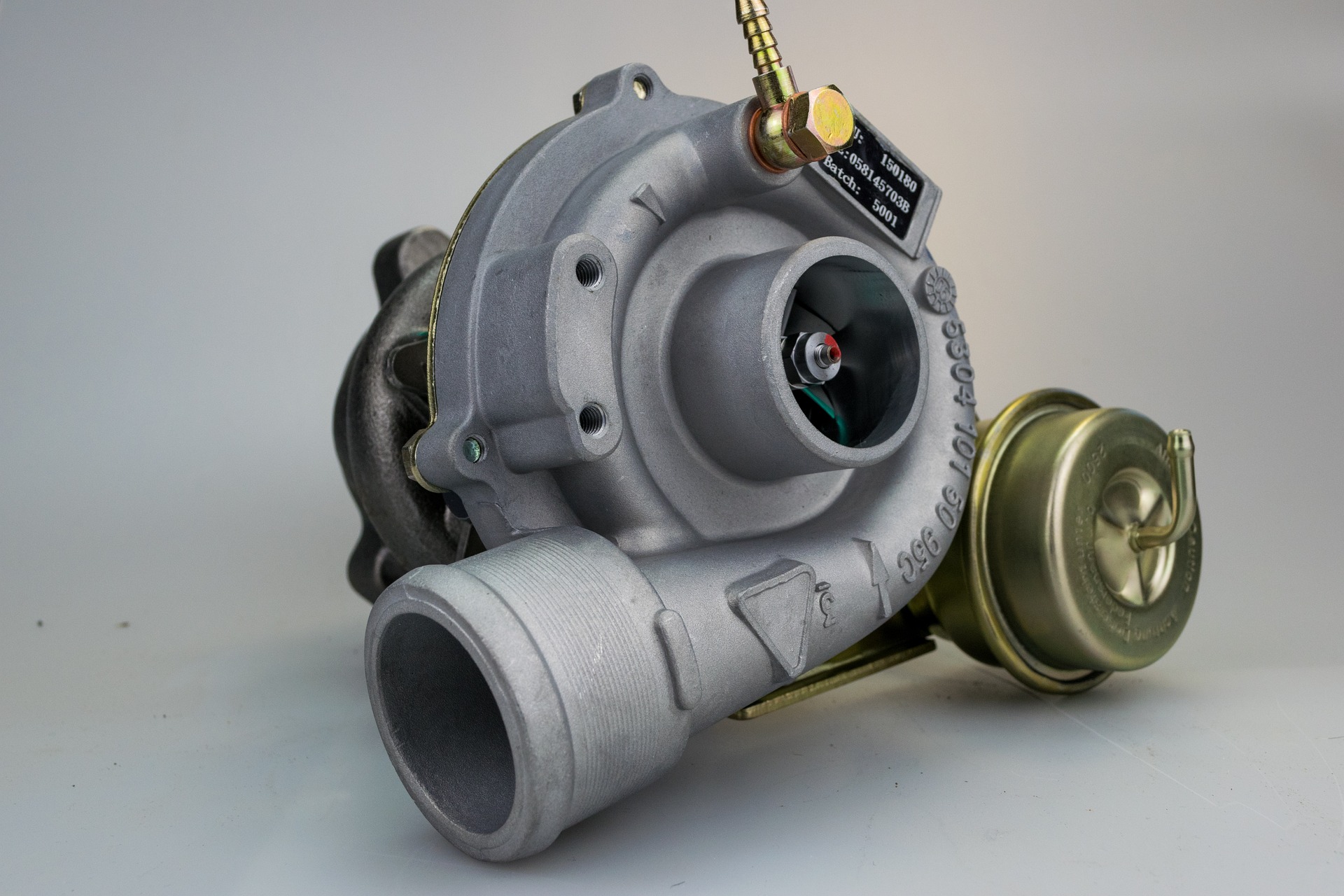More and more today, vehicles are coming to market with stock turbochargers, whereas they used to only be found in performance vehicles. You may have heard that if your car with a turbocharger has a problem, it could be caused by the catalytic converter.
Let’s take a look at how these two parts work together. You’ll learn why a faulty cat can indeed affect your turbo. And you’ll be able to recognize the signs of a failing catalytic converter so you can ward off more extensive problems with your engine.

Image by Jan Barkmann from Pixabay
What’s the Purpose of a Catalytic Converter?
The catalytic converter is part of your exhaust system. It filters out unwanted elements within exhaust gases and burns them. This provides two important benefits:
- It reduces emissions that contribute to poor air quality and smog.
- It improves the vehicle’s efficiency as a bonus.
Small cells inside the catalytic converter contain platinum, palladium, or rhodium. A wash coat in each cell wall (aka the catalyst formulation) that contains these metals interacts with the gases flowing through it, along with oxygen, to remove the worst parts of the gases — mostly carbon monoxide, nitrogen, and unspent fuel. Some converters contain multiple catalyst formulations in segments for more thorough exhaust filtering.
The primary process for the catalytic reaction is oxidation. You might remember from chemistry classes that a catalyst speeds up chemical reactions but does not get used up in these reactions. So a catalytic converter can perform its filtering function for thousands of miles before it needs to be replaced.
How Does a Turbocharger Work in a Car?
If your vehicle has a turbocharger, it should say “turbo” somewhere on its badges. Or the letter “T” may be incorporated in one of several acronyms denoting a turbo, such as:
- TDI
- TSI
- TFSI
- TDCI
The purpose of the turbocharger is to provide the engine’s cylinders with more oxygen by compressing the air flowing into them. You might recall that oxygen is a necessary component of the engine’s combustion reaction. So, more oxygen means more fuel can be used at any given moment.
This increase in air density in turn produces greater horsepower. You enjoy faster speeds and more power under the hood. Without a turbocharger, you would need a much physically bigger engine to accomplish the same boost in performance.
There aren’t a lot of negatives associated with turbochargers, although vehicles with turbos usually cost a bit more, and you will likely need to fill the tank with premium or super premium gas. Also, you need to be more vigilant about maintenance, like regular oil changes.
How does a turbo connect to the exhaust? Turbochargers are actually powered by the vehicle’s exhaust. They can have different configurations, but they rely, at least in part, on air from the exhaust to spin their turbines that compress air.
Will a Problem with Your Catalytic Converter Affect Your Turbocharger?
So…if your catalytic converter is part of your exhaust system and your exhaust powers your turbocharger, you can imagine that a failure of the cat will reduce the turbo’s function.
Catalytic converter problems are not the only thing that can cause a turbocharger to cease working. But if your cat goes bad by becoming clogged, it likely will affect your turbo’s performance.
Usually, what happens is your engine’s turbocharger will be deprived of the air it needs to work. The intake impeller — a fan-like part that moves air — slows down to the point where the turbo no longer functions. Not only does the vehicle become far less responsive, it can even overheat, causing catastrophic consequences.
What causes catalytic converters to fail?
- Engine misfiring
- Clog air filter
- Bad oxygen sensor
- Coolant leaking into exhaust
- Leaking engine oil
It’s worth noting that because of their precious metal content, catalytic converters are also subject to theft. You might leave your car parked somewhere for a few hours, only to return to find it removed. The telltale sign is a new roaring sound from the exhaust that wasn’t there previously — worse than a bad muffler that needs to be replaced.
What Are the Signs of a Failing Catalytic Converter?
Knowing the early signs of catalytic converter failure can prevent your turbocharger or entire engine from being ruined. Have you noticed any of these things with your vehicle?
- Poor responsiveness or failure to accelerate
- Slow-feeling engine overall
- Dark smoke emanating from the tailpipe
- Extreme heat beneath the vehicle
- Rotten egg smell (sulphur) from the exhaust
It’s time to take your car or truck to your Vancouver, BC mechanic. They can diagnose the problem and may see a computer code that also points to a bad cat. Don’t delay, as your vehicle — and your bank account — may pay the price.
